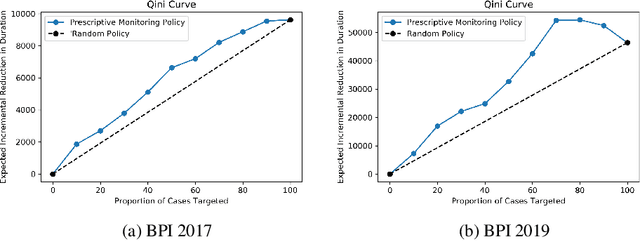Prescriptive Process Monitoring for Cost-Aware Cycle Time Reduction
Paper and Code
May 15, 2021



Reducing cycle time is a recurrent concern in the field of business process management. Depending on the process, various interventions may be triggered to reduce the cycle time of a case, for example, using a faster shipping service in an order-to-delivery process or giving a phone call to a customer to obtain missing information rather than waiting passively. Each of these interventions comes with a cost. This paper tackles the problem of determining if and when to trigger a time-reducing intervention in a way that maximizes the total net gain. The paper proposes a prescriptive process monitoring method that uses orthogonal random forest models to estimate the causal effect of triggering a time-reducing intervention for each ongoing case of a process. Based on this causal effect estimate, the method triggers interventions according to a user-defined policy. The method is evaluated on two real-life logs.
 Add to Chrome
Add to Chrome Add to Firefox
Add to Firefox Add to Edge
Add to Edge